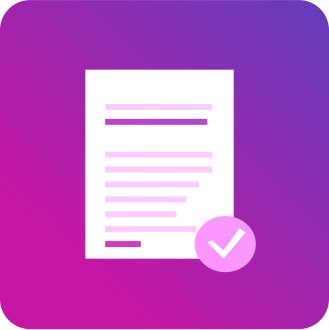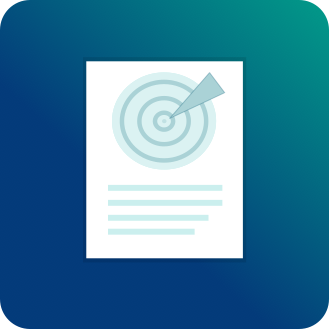Together with 
|
Good morning. It's Rohan with your latest Career Supplement, your personal mentorship email that takes a few minutes to read, but contains stuff that will speed up your career by years. |
Today in Mentor's Corner, let's talk about starting a new job. People think that when you start a new role, your company will have the perfect process in place to get you up to speed. But, that's never true — you usually need to figure out a lot on your own. |
So today, I'll give you some clear steps to onboard yourself to a new role, make the right first impression and set yourself up for success. Even if you're not starting a new role right now, you'll still get value — I'll show you how to become more visible and make a bigger impact at work. |
🔔Today's email is sponsored by Notion AI. In the Spotlight section, I break down how to make your team more efficient using AI — and how Notion makes it easy to add AI to work. Check it out here. |
Estimated read time: 5 minutes 47 seconds |
|
☕ CAREER PICK-ME-UP A 30-second bite-sized career insight. |
|
|
Today's pick-me-up is from a LinkedIn post I made this week: |
| | | | If you've ever trained at the gym, you know it's not about comparing yourself to someone else. | You can't walk in on day one and expect to match someone who's been there for years or has the better genetics. | The same goes for your career: it's not fair to compare yourself to someone with who's taken a different path, has more experience or has had different opportunities until this point. | The only comparison that matters is you against your past self. | Ask, "Am I better at my job than I was 6 months ago?" "How can I be more efficient now than I was when I was hired?" | Your progress is about how far you've come, not how you measure up to others. |
| |
| | |
|
P. S. If you're not yet reading my writing on LinkedIn, go here and hit the ' + Follow' button. Over there, I share a mix of career strategy and mid-week motivation. Topics coming up exclusively there: how to motivate your team, the smarter way to change careers, and how to hack your first impressions. Don't miss them. |
|
|
How to make your team more efficient — with AI |
You know, as much as I talk about personal growth, making your team better is equally crucial. When your team works better and is more efficient, projects run better, you're able to deliver more, and you create a bigger impact on your company — which means you'll get promoted quicker. |
But, how do you increase your team's efficiency without taking on more work? Enter Notion AI. |
Notion's already a powerful tool — you can use it to run your team's projects, with wikis, docs and automations. Now, with AI, it makes your team a whole lot more efficient. Here's how to do that: |
🤷🏻♂️ Speed up tasks. The best tasks for AI to take over are the time-consuming, but important, ones.
Like putting together a summary of a meeting with the key action items. Or rewriting parts of your report so it's understood by both business and technical teams. Notion AI is great for this.
⚖️ Help your team come up with ideas. It's also great for those times when you're stuck. I asked it to brainstorm ideas to promote a podcast and, it created a table and prioritized the best ones.
|
|
If you're not using Notion AI at work, you're missing out on the biggest productivity shift since to-do lists. And I mean it. |
Check out Notion AI using this link. Notion's free to get started, and you can unlock Notion AI for $10 a month. |
*All our partners are personally vetted. I use Notion myself, every day. |
|
📈 Mentor's Corner Insights put together by me or coaches who usually charge $750+/hour and mentor senior execs. One practical lesson a week that will make a measurable impact on your career, delivered right to you — for $0. |
|
|
How to onboard yourself in a new role |
In an ideal world, when you start a new job, you'd be given: |
a clear set of expectations of what you need to do a rigorous 6-week training program to get you up to speed and a mentor who'd meet with you once a week to fill in any gaps
|
Alas, for 90% of companies, onboarding resembles something more akin to this: |
|
However, that doesn't mean that everyone's making a pig's ear of it. |
For example, the other day, I read this on a forum: |
"My team was super busy, we had a lot of proprietary tools and processes, things were changing fast, poor documentation, etc. | But I saw two new co-workers have completely different onboarding experiences. | One sat around lost, waiting for guidance, not complaining but also not integrating at all. | The other was so eager, joining every call, even when she didn't know what was going on, being annoying asking questions, forcing us to explain - she rapidly became a very helpful and a fully integrated onto the team, while the other person was still drifting. |
|
|
TL;DR? |
You can decide the type of onboarding you want to have. |
Here's how — but first, a mindset switch: |
🙅♀️ No-one's going to go out of their way to guide you |
Crazy, I know. But here's the thing. |
In most cases, the company hired you for one simple reason: they didn't have enough time to do their normal tasks to begin with! |
And that means that by definition, (unless it's a Microsoft or a 3M) the fact that you've been hired means you're joining a time-poor company, and there likely won't be a formal onboarding process. |
So… |
🙋♂️ You've got to onboard yourself |
So step one: |
Adopt a mindset of personal responsibility. This isn't going to be a passive process, but an active one. |
You're not going to soak up knowledge like a sponge. You're going to seek out knowledge like a knowledge seeking missile. |
And, on the plus side: |
If you can show you're someone who can figure things out? You'll win a lot of credibility & respect in the office. |
|
So, how do you onboard yourself? |
Start by asking… |
📨 "What do I need to know to start contributing?" |
Make a list of each task your job involves. (If you have no idea what the tasks are, either ask a colleague or observe). |
Then ask yourself "can I do it?" |
If yes, great. |
If no, put it on another list. |
You should now have a list of all the things you need to know, but can't do yet, which means you're ready to… |
🎯 Become a meeting sniper |
When time's short, you're never going to get someone to sit down for an hour a week, where you can pick their brains at your leisure. |
Instead, be a meeting sniper. |
Know exactly what you need to learn from the meeting (the list above), and make a short request that's easy to say 'yes' to, with an agenda for every informal chat you set up. |
Here's an example of how to do it: |
"Hey Sarah, my primary responsibility for the first month in this role is to support the Omega project. Jim said you were the right person to get my hands dirty. Can we meet so you can share: |
How I can get access to past data and the context? What's been done so far? Is there anyone else I should be speaking to?
|
Happy to do this over email too if that's easier" |
Remember, the goal isn't to set-up endless meetings and become a burden. Limit yourself to a few, and make the most out of them. |
That's also why you'll want to… |
📝 Take notes |
People hate telling you twice. It's not only annoying, but makes you look slow. Not good. So when someone tells you something, take notes. |
|
🏆 Get some small wins on the scoreboard |
Although your priority is to learn the key skills of the job, you also want to make a great impression during your first 60 days by showing you've made an impact. |
To do that: |
Identify some smaller projects you can knock out to get a few small wins under your belt. |
For example: |
If there's a bunch of important info spread out in different places, pull it together. Make one go-to document or a simple tracking system or introduce AI into your team's workflow (P.S. Notion's good for stuff like this). |
They're simple tasks, don't depend too much on others, and you'll have something tangible to show at the end of your first 60 days. |
🧐 Be 'seen' |
Make your presence known. And communicate upwards so people know you're busy. Here's how: |
Good: Tell your manager, "Can I send you a list of 5 things I think I need to hit the ground running? I'll then set up a 1-1 and we could go through that." |
Bad: "Let me know what you need help with! I'll be at my desk." |
|
That's a wrap for today. I hope that helped — if you're not starting a new role right now, consider sending this email to someone who is so they can make an impact in their new role. |
And if you get value out of my writing, find me on LinkedIn here for more career strategy. |
Some of my best writing is coming up there — like a write-up on how to make stronger first impressions. Following me and reading my write ups through the week are easy ways to make your career development a priority. Here's a link — see you there (click the blue '+ Follow' to stay updated). |
|
From Our Team Tried all our AI tools? | Want a better resume? Upload it to Score My Resume and get expert feedback, instantly. You'll find out if and where your resume falls short. Get your resume review |  |
| Want to make your LinkedIn profile work for you? LinkedIn Review will show you how to optimize it so you get more leads, jobs and opportunities. Optimize your profile |  |
| Want to get past the ATS? Targeted Resume will check if your resume has the right keywords. Target your resume |  |
|
|
|
|
|
|
|
🤣 |
|
🔎 Speed Up Your Job Search One actionable piece of advice to help you hack your job search. |
How to show leadership skills on your resume |
Read the full article here. |
🧐 Especially if you're applying for mid- to senior-level roles or ones that involve managing others, hiring managers will want to see evidence of leadership or management skills on your resume. |
❌ You can't just say things like "I have strong management and leadership skills" and expect hiring managers to believe you — using subjective buzzwords on your resume is a common mistake people make. |
✅ Instead, you want to show evidence of leadership through your experience — for example, you might write about when you led an important project or trained others in your team: |
|
🎯 You should use a tool like Score My Resume to find out if your resume shows enough leadership experience. One of the components of your resume's score is leadership (among 20+ other recruiter checks), so it's a great litmus test to see if you've checked this box. Try it. |
|
|
What'd you think of today's email? |
👍 I loved it. |
🤔 Pretty average, step it up. |
🤢 Not enough value. |
Here's what someone said about my last one — thank you! |
|
|
P. S. To make sure your career never goes off the rails, don't miss my future emails. Do me a favor and make sure you receive each email:
|
If you're using Gmail, hit the 3 dots at the top-right corner, and choose Move to -> Primary. Or drag this email to Primary if you're on your computer. If you're using Apple Mail, tap on our email address at the top of this email (next to "From:" on mobile) and click "Add to VIPs.".
|
|
Comments
Post a Comment